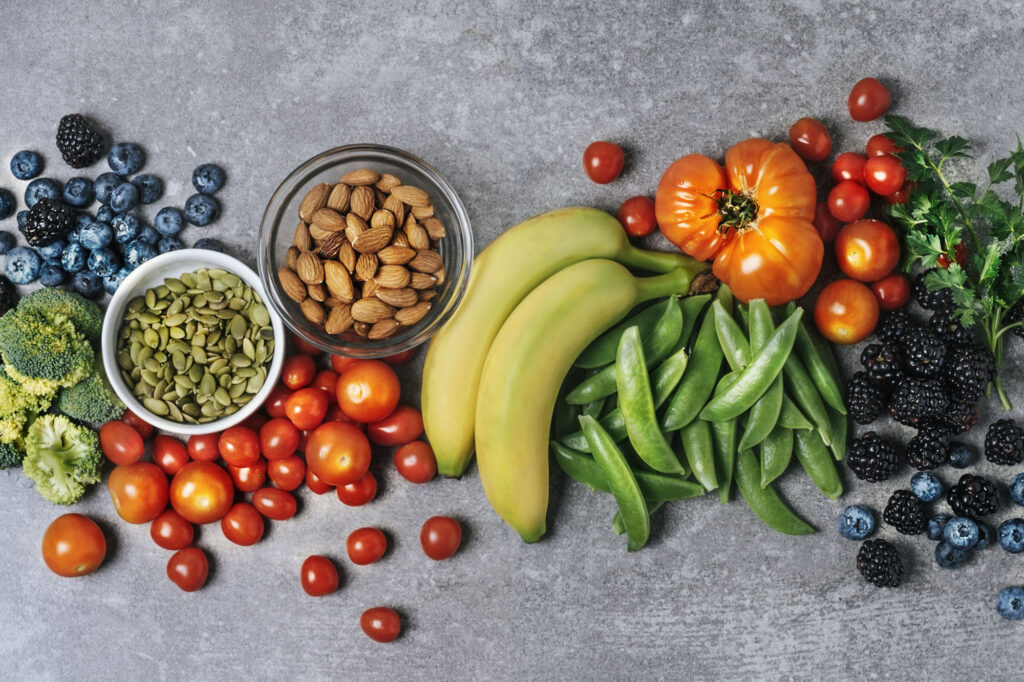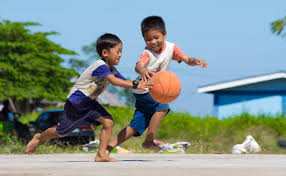Should I be worried about Vitamin K?
Category: Healthy Nutrition

I have been asked as to the needs or benefits of Vitamin K for an older woman. Vitamin K is a nutrient that the body definitely needs. It is important for blood clotting and healthy bones.
You need to consult with your doctor if you are taking Coumadin (Warfarin). You should also consult with your doctor if you are taking Bile acid sequestrants (Questran and Colestidil). Additionally discuss with you doctor if you are taking Orlistat (Alli and Xenical) for weight loss.
What happens if you don’t get enough Vitamin K? A severe deficiency can cause bruising and bleeding problems because the blood takes longer to clot. Vitamin K deficiency can also reduce bone strength and increase the risk of osteoporosis. You could be at risk of breaking a bone. The body needs Vitamin K for healthy bones!
What is Vitamin K?
Vitamin K is an essential nutrient that your body needs. It works to help your blood clot. A clot is a clump of semi-solid blood that your body forms to stop bleeding.
Vitamin K helps with: Wound healing. Creating strong bones. Protecting against heart disease.
In addition, your body makes Vitamin K out of bacteria in your intestines. (2) This is where good gut health is important.
What are the symptoms of Vitamin K deficiency? The main symptom is uncontrolled bleeding. Other symptoms can be subtle and include:
Sleepiness
Vomiting (3)
Seizures (4)
Bruises (especially on the head) (5)
Petechiae (little red spots) (6)
Nose bleeds (that can’t be controlled) (7)
Jaundice (8)
Pale skin
Stool that is bloody, dark, and sticky
If you have any of these symptoms, consult with your doctor. Do not self-diagnose.
The amounts of Vitamin K vary from age.
Birth to 6 mos: 2.0 mcg 7mos to 12 mos: 2.5 mcg
It then jumps to 1-3 years 30mcg. 4-8 years: 55mcg. 9-12 years: 60mcg. and 14-18 years: 75mcg,
The best person to ask, of course, especially for infants and toddlers, is your Pediatrician.
Adult men 19 years and older: 120mcg Adult women 19 years and older: 90mcg.
What happens if you don’t get enough Vitamin K? A severe deficiency can cause bruising and bleeding problems because the blood takes longer to clot. A Vitamin K deficiency can also reduce bone strength and increase the risk of osteoporosis. The body needs Vitamin K for healthy bones!
What you can do for your children is to make certain their diet is rich in green leafy vegetables (spinach, kale, broccoli, and lettuce.) Vegetable oils (Soy and canola) Some fruits: Blueberries and figs (If you haven’t tried a fig: you need to. But be careful as you won’t want just one!) Meat, hard cheese and eggs, and soybeans.
As to our kiddos: Diet plays an important factor. I have always said: add something raw to a meal for greater food satisfaction. Add to their diet the foods that are rich in vitamin K, as I have illustrated, at a meal.
What about an afternoon snack? Finger food always works. Add nuts, berries, a cut-up banana, hard cheeses, sliced meats. Perhaps a whole grain cracker. Don’t hesitate to decorate your plate with seasonal napkins. Have fun with it. Your kiddos will Love the treat! And you won’t have to “force” nutrient dense veggies/fruits/nuts on them at mealtimes. Have fun with nutrition and the kids will eat it!
You can make this after school snack the night before. (I sprinkled my cut-up fruit with “Fruit Fresh” and the fruit did not brown (oxidize). My kiddos and their friends loved this after-school or afternoon treat. Have fun with it
My advice: Vitamin K is needed for healthy bones and good blood. BUT: if you are taking any kind of prescribed medicine, you need to consult with your doctor. Consult with the pharmacist before adding a Vitamin K supplement. Always err on the side of caution.
References:
(1) https://my.clevelandclinic.org/health/diseases/24129-heart-disease
(2) https://my.clevelandclinic.org/health/articles/24494-bacteria
(3) https://my.clevelandclinic.org/health/symptoms/8106-nausea-vomiting
(4) https://my.clevelandclinic.org/health/diseases/22789-seizure
(5) https://my.clevelandclinic.org/health/diseases/15235-bruises
(6) https://my.clevelandclinic.org/health/symptoms/21636-petechiae
(7) https://my.clevelandclinic.org/health/diseases/13464-nosebleed-epistaxis
(8) https://my.clevelandclinic.org/health/diseases/22263-jaundice-in-newborns


Facebook Comments